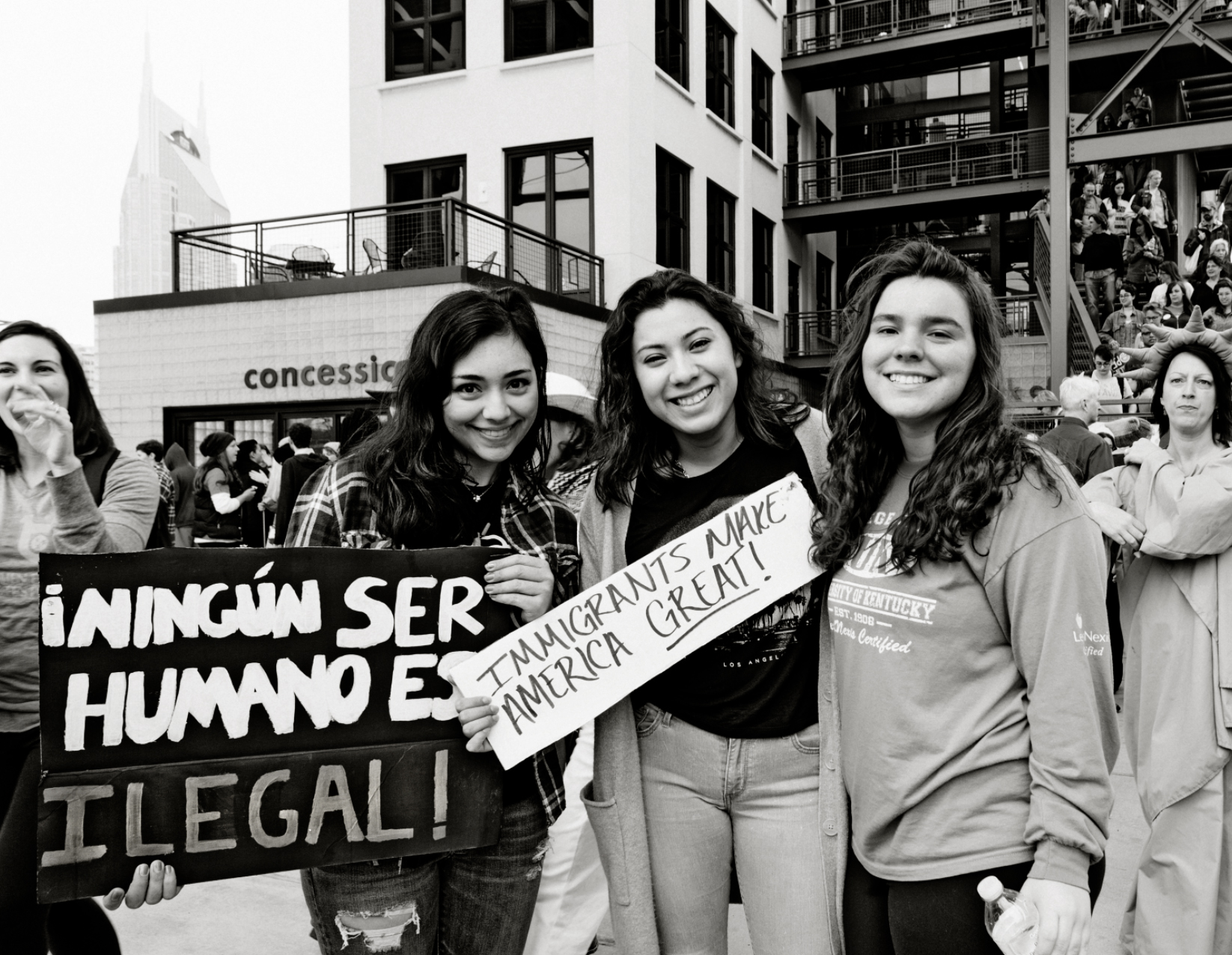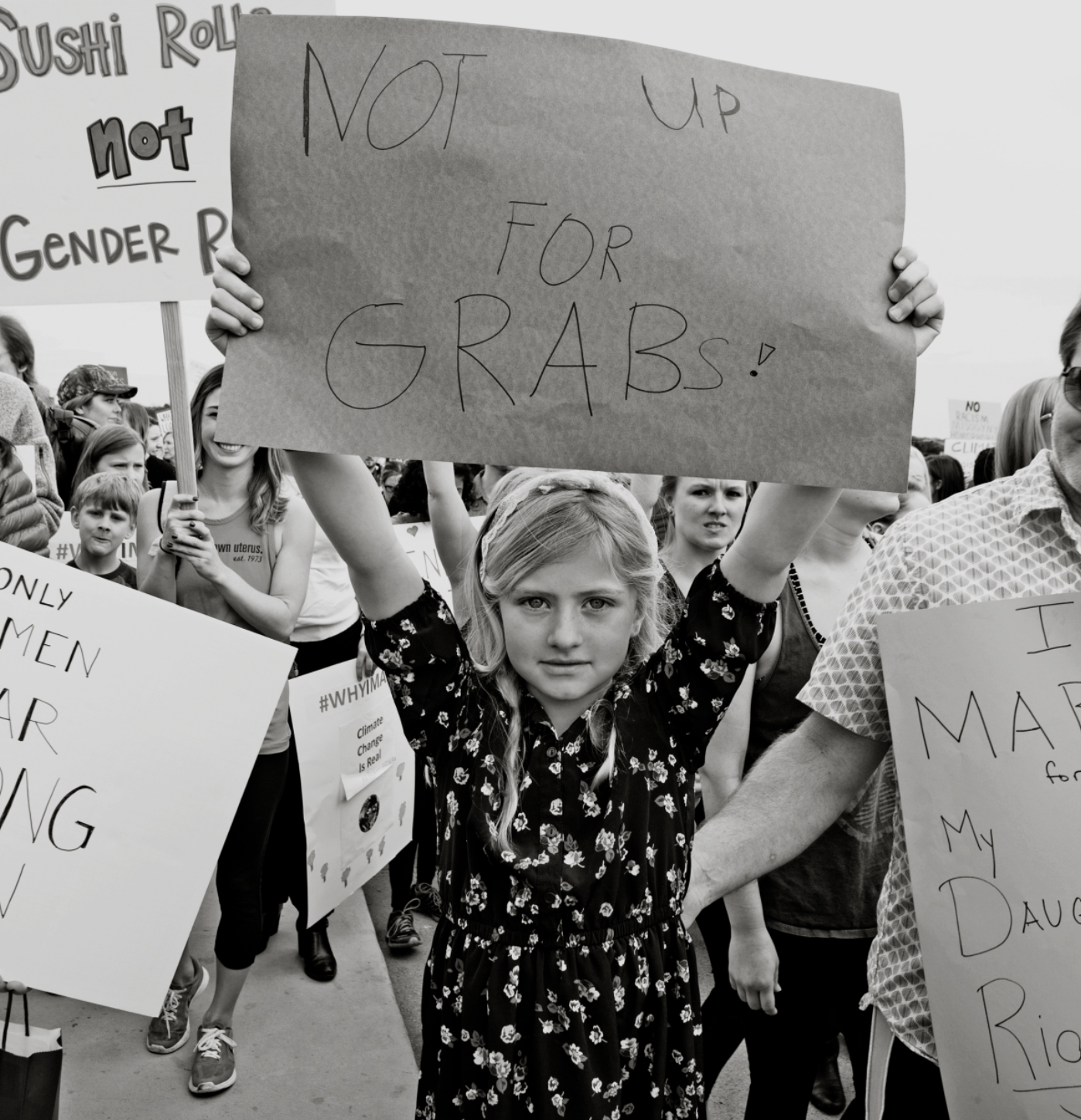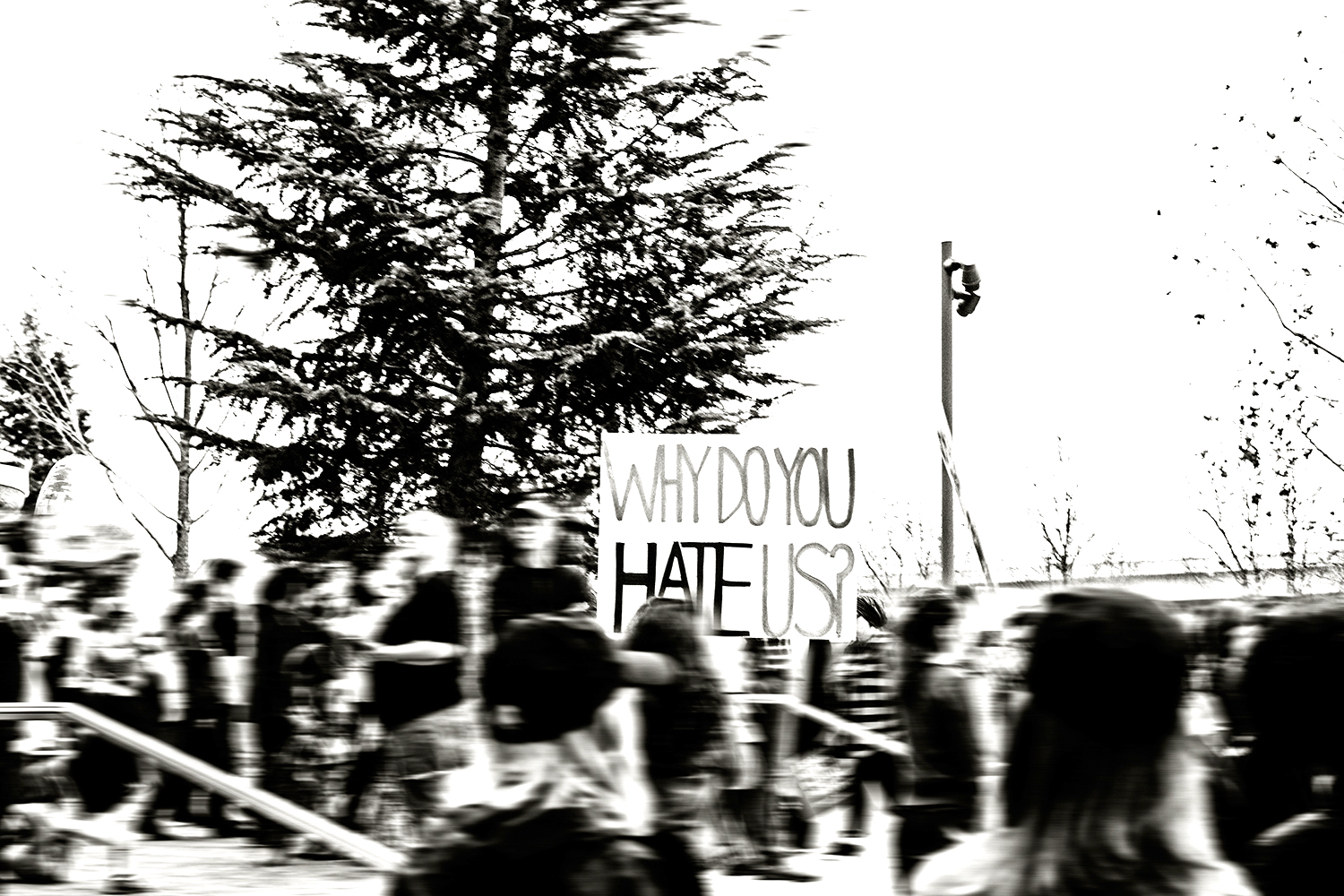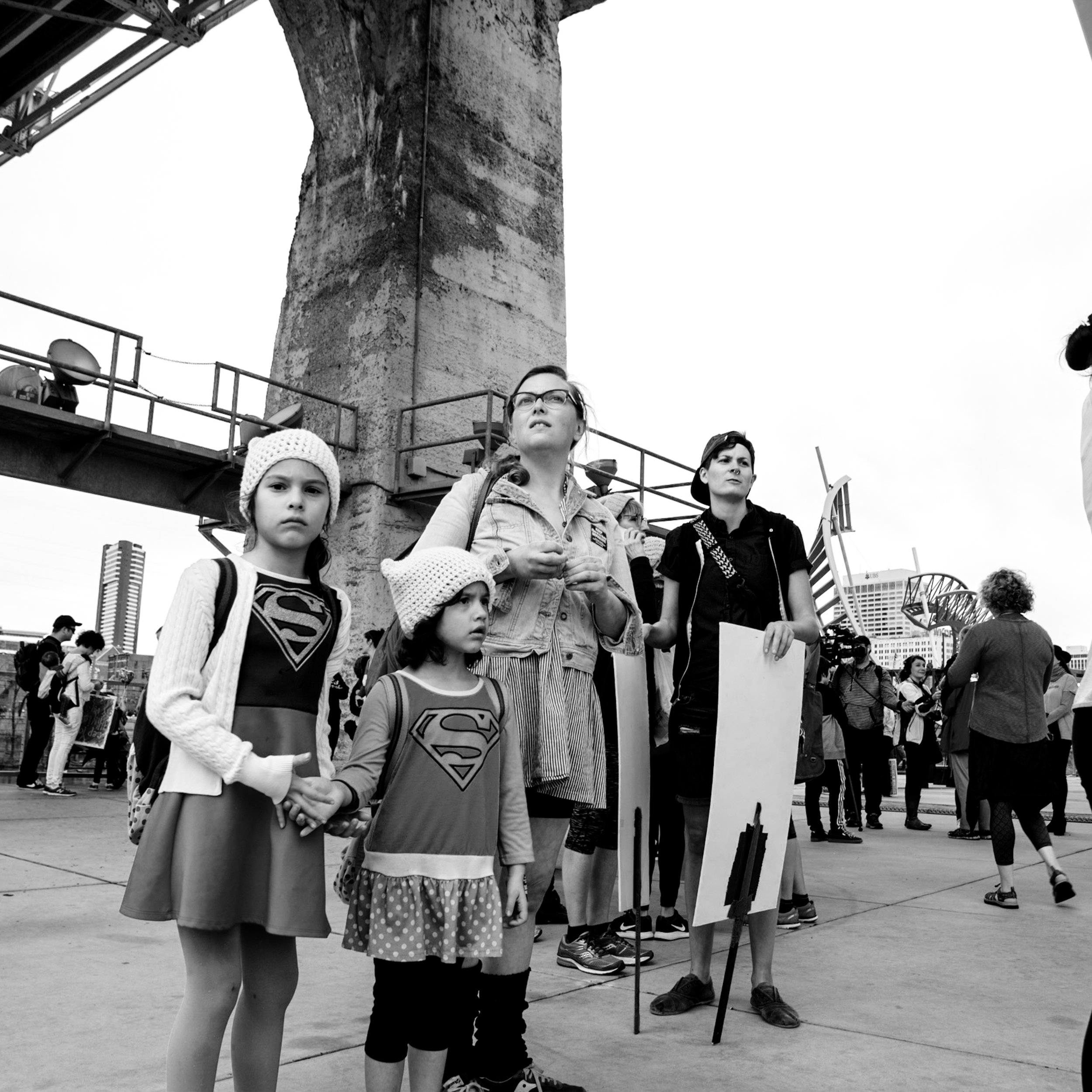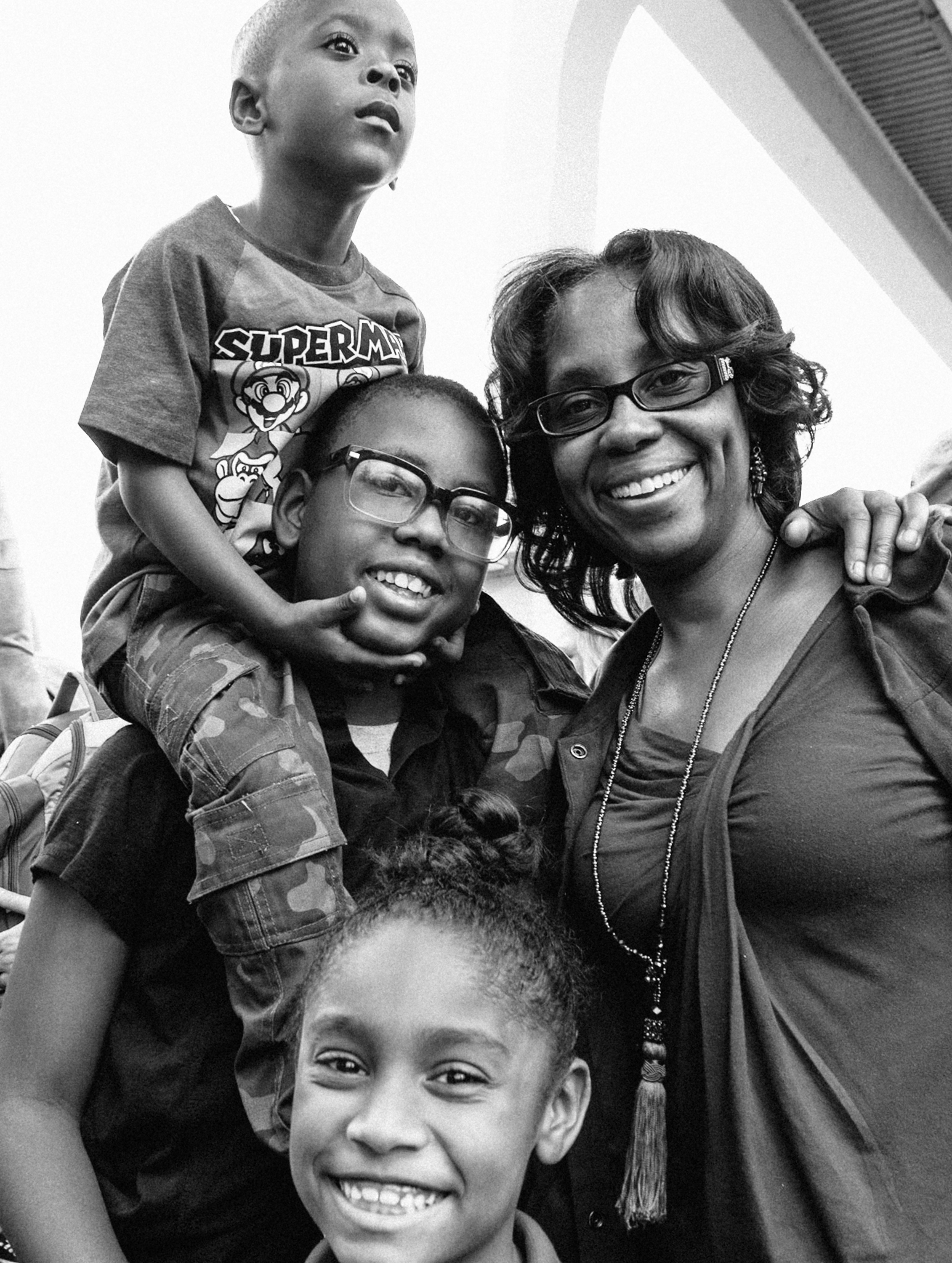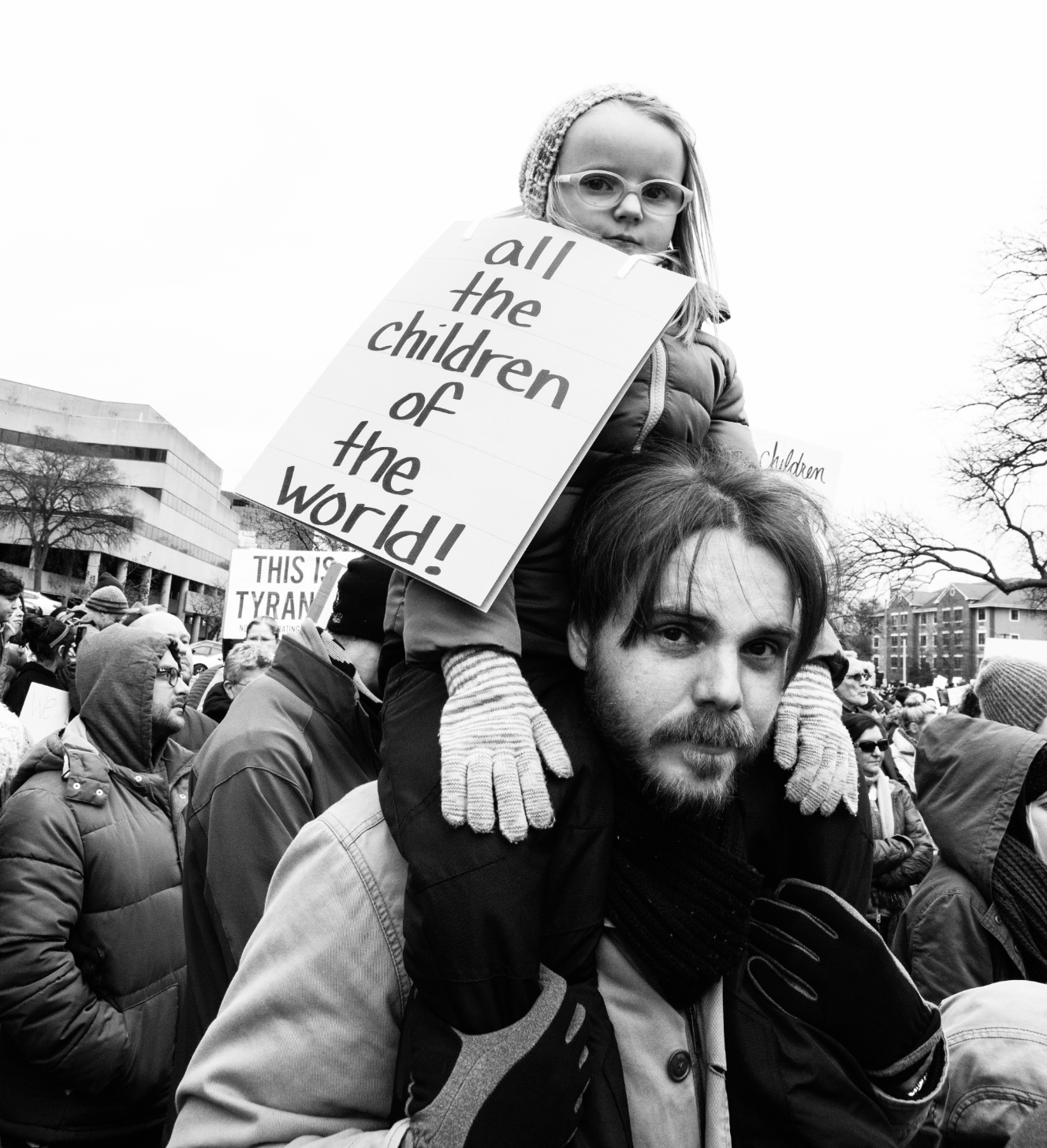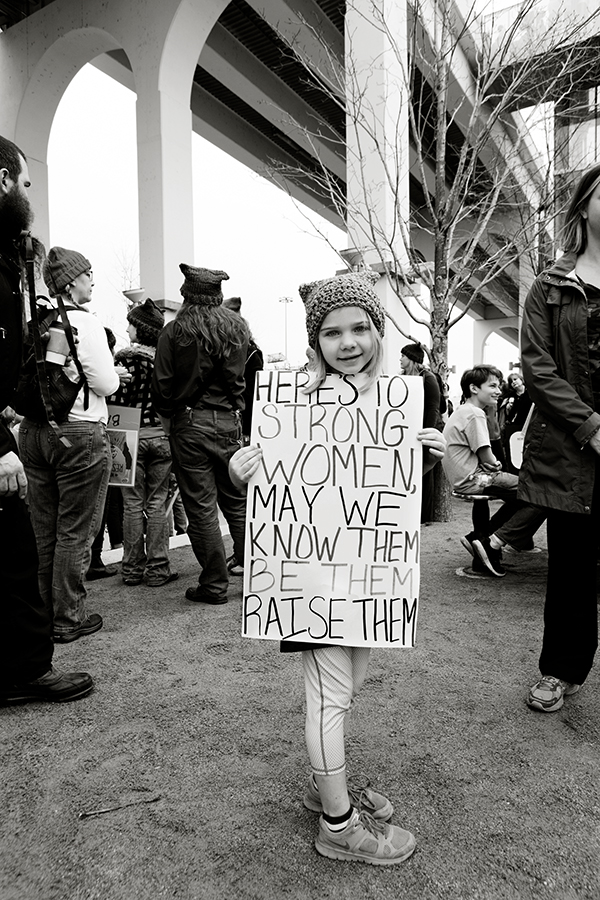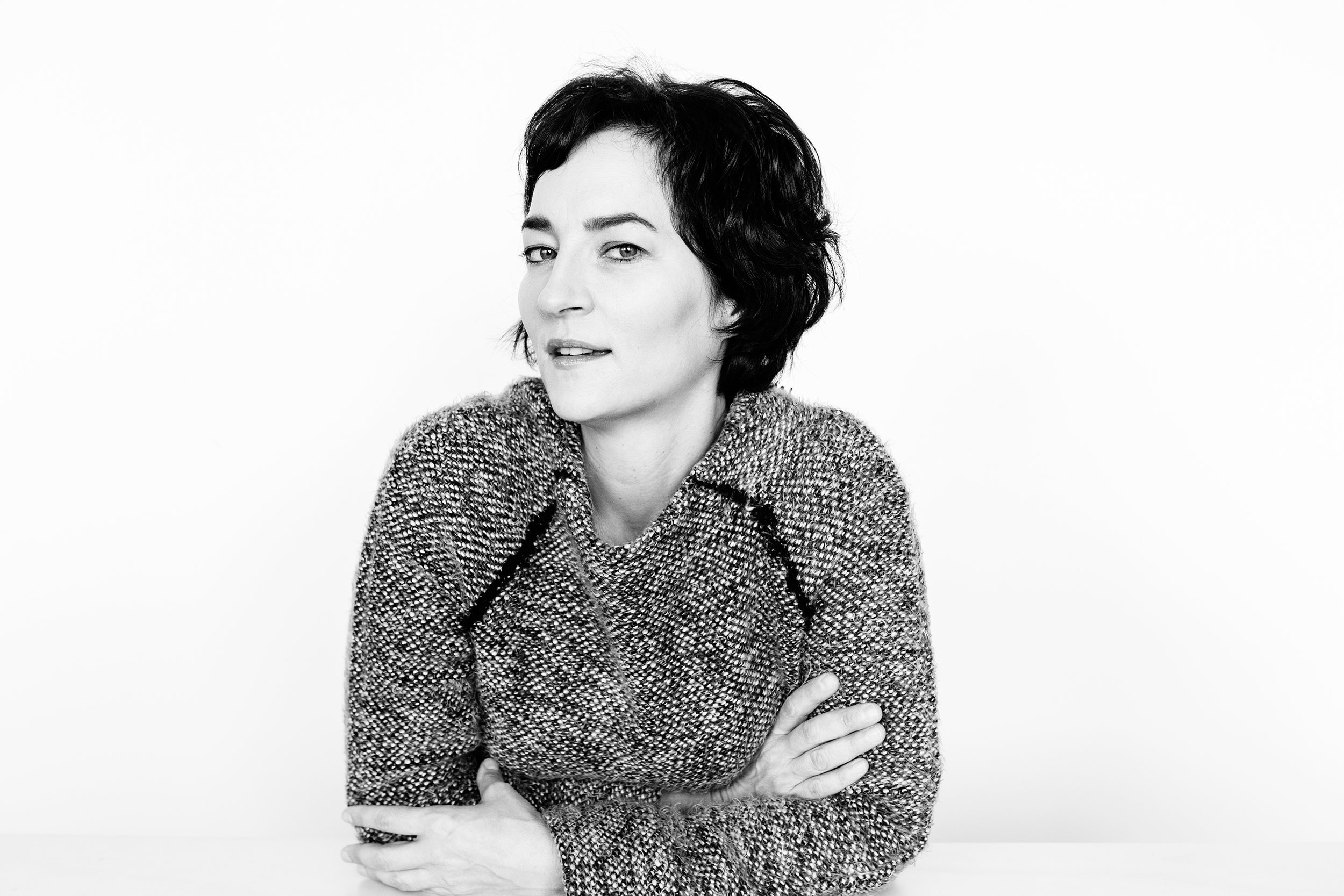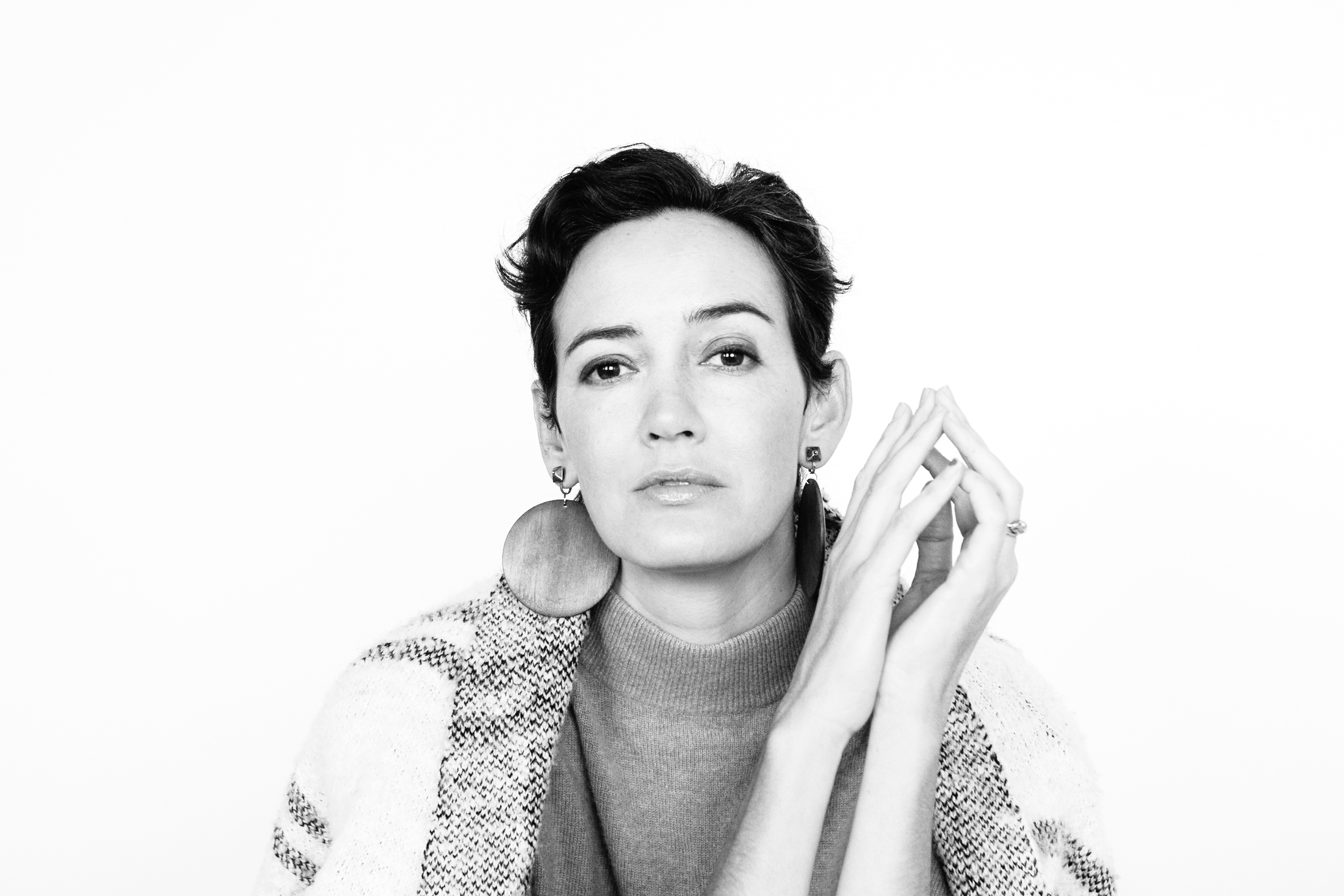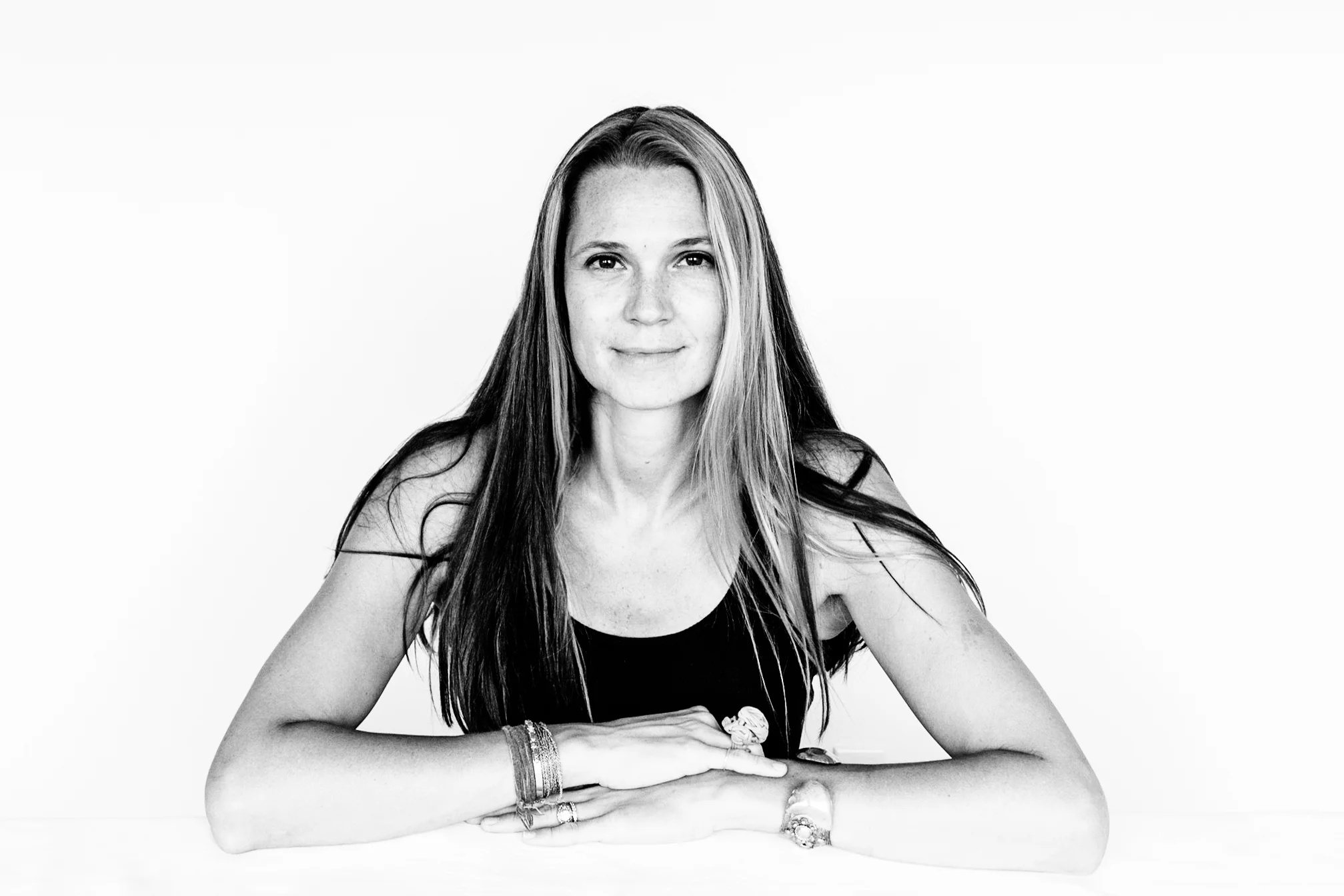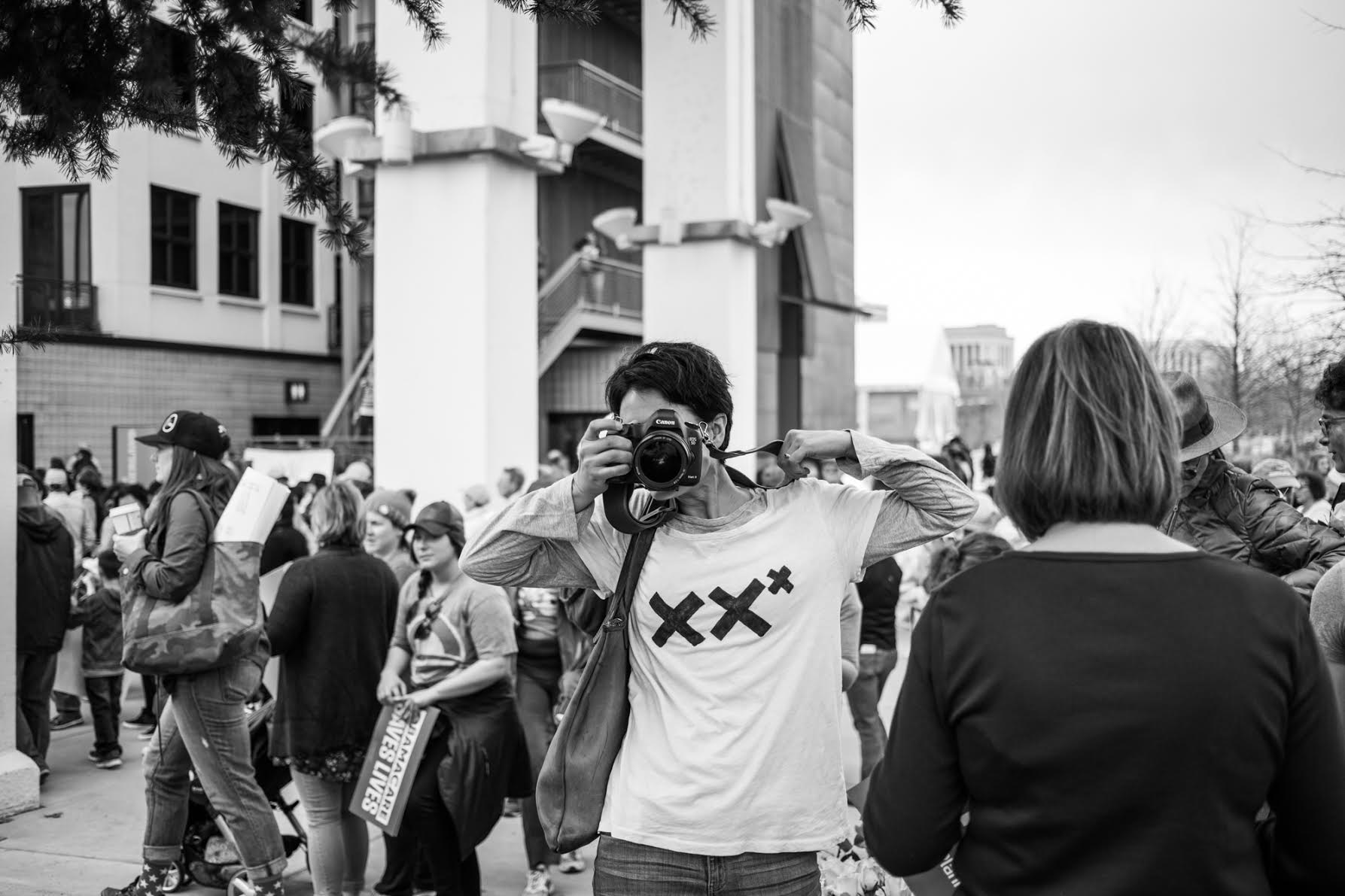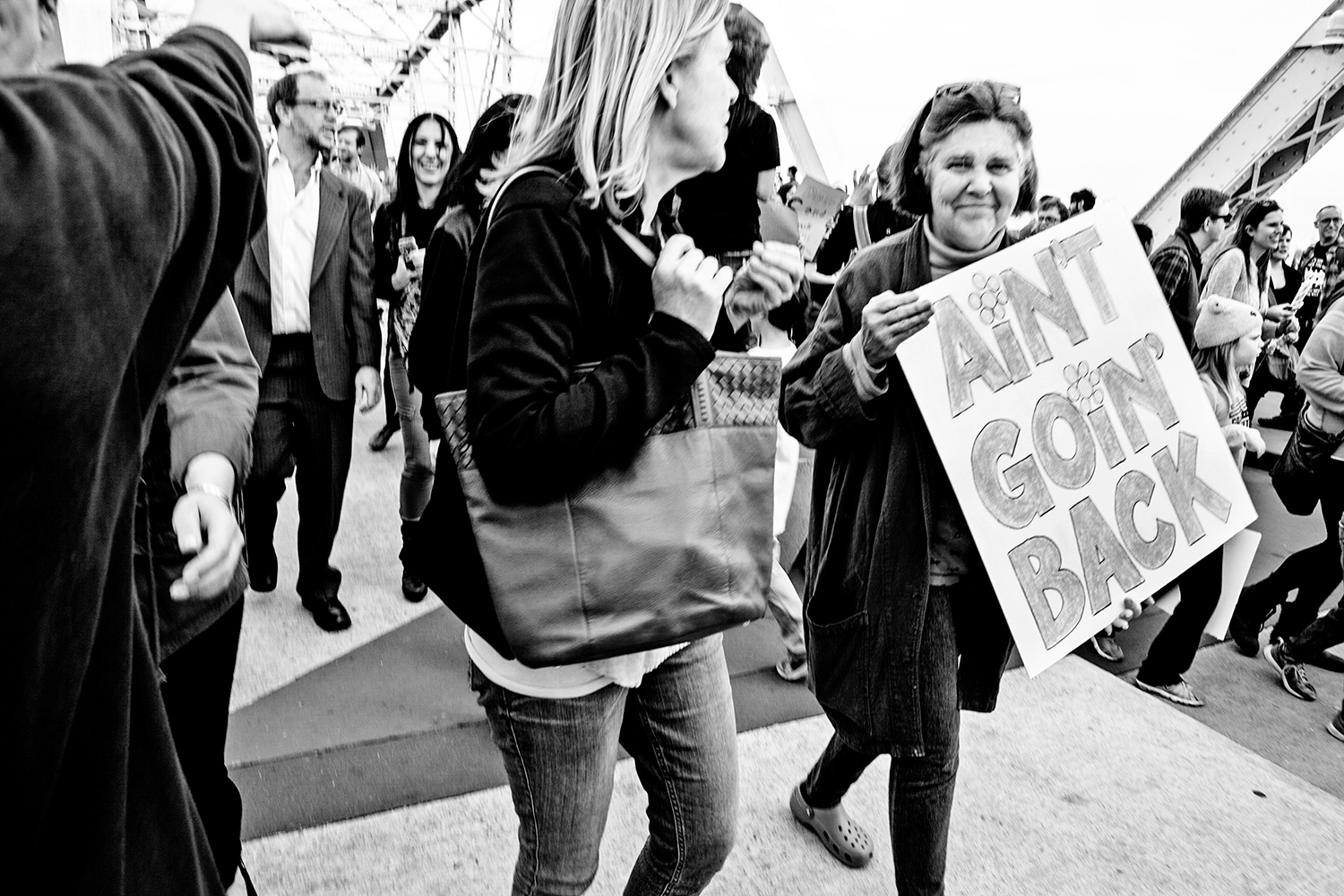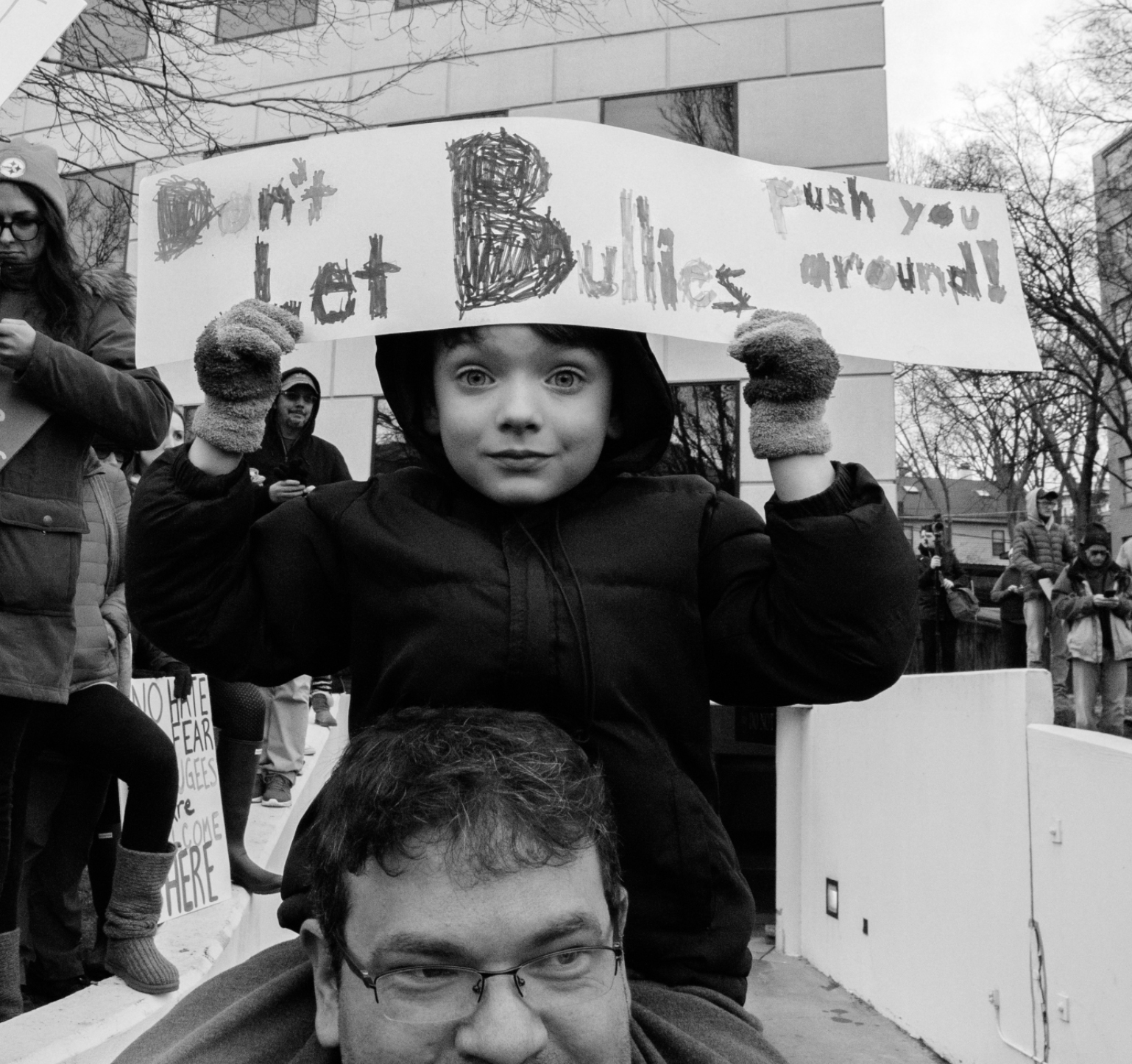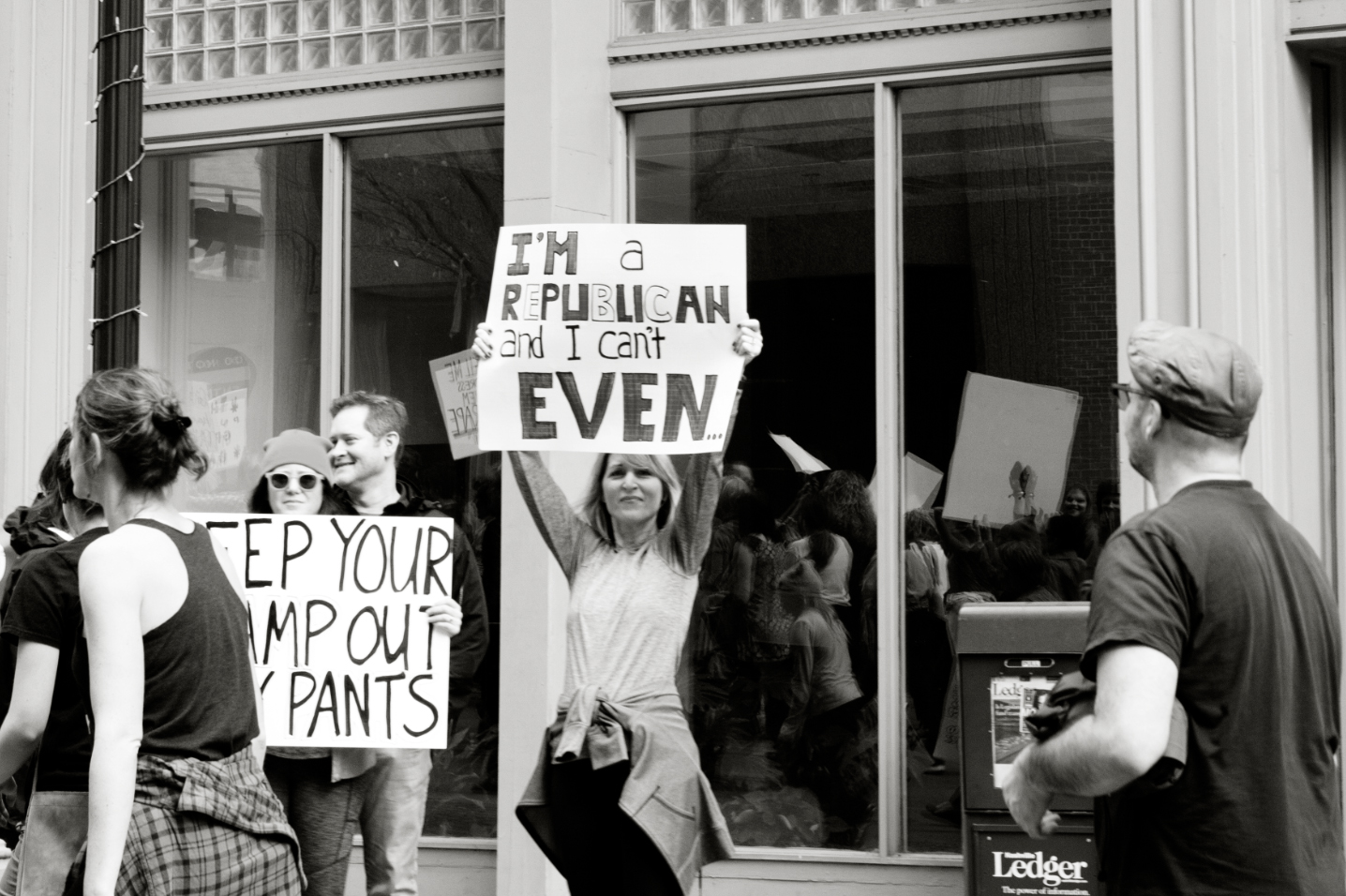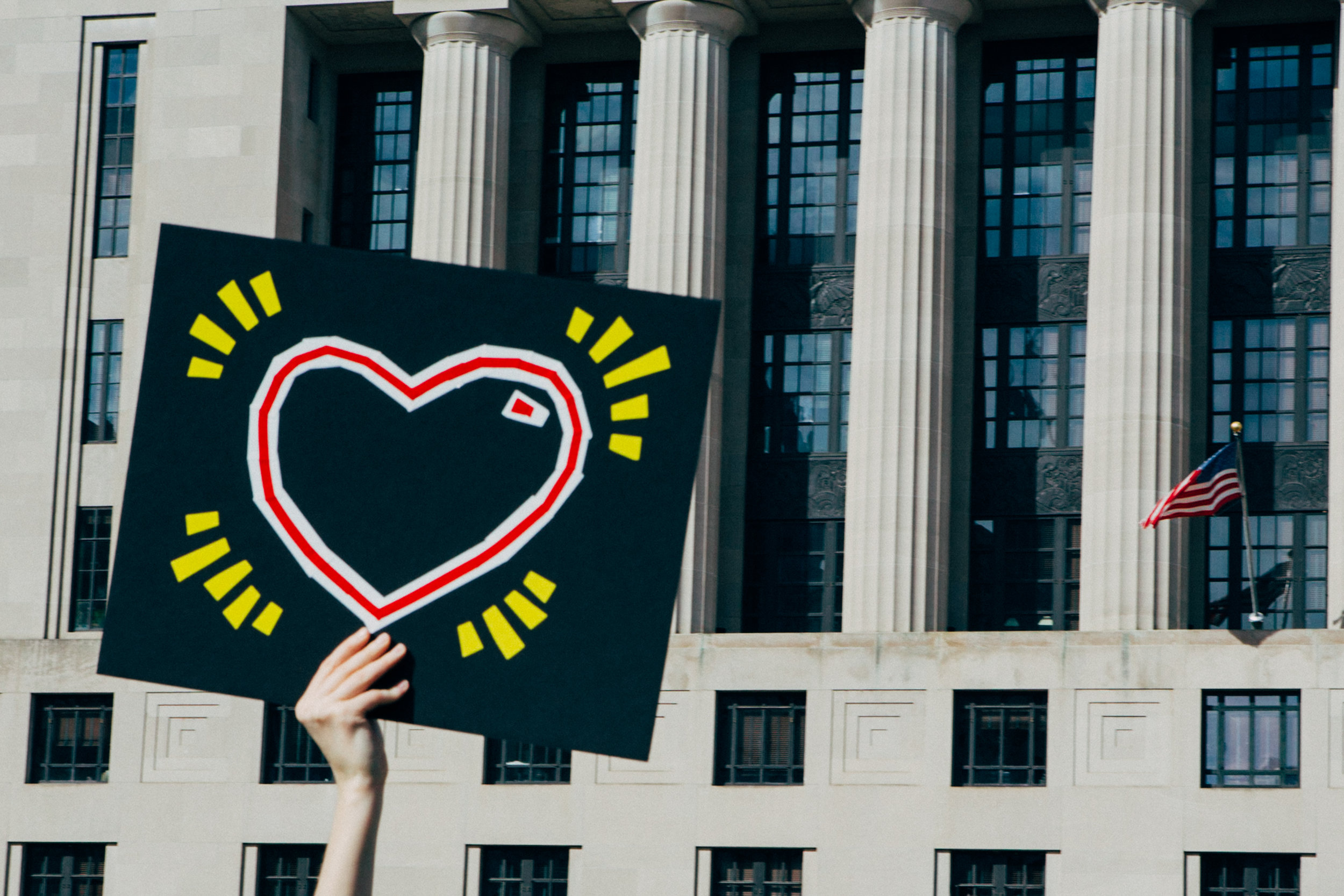Why We Marched
Beautiful faces in the crowd at the Nashville Women's March on January 21, 2017. All photos by Heidi Ross
The Callaway Report shares the stories of Nashville’s creative class, their work and their spaces — a description that makes what you’re about to read a bit of an anomaly. Despite my strong feelings about the political climate in our country and as much as I support the opinions expressed in this email, TCR was not designed to be a political platform. So if this is your first time reading my website and the content is not what you expected or goes against your personal beliefs, please don’t abandon ship. But do read on. This is important.
I watch presidential inaugurations the same way I watch award shows: curled up on my couch, flipping channels to see which station has the best commentary and clearest views of arriving power brokers. I love a good spectacle, and inauguration day pageantry is the closest D.C. comes to hosting a red carpet.
But at noon on Friday, January 20, 2017, my couch was empty and the TV was off.
As the 45th President of the United States was being sworn into office, I was on my way to the Nashville airport to catch a flight to Washington, D.C. Less than 24 hours later, I joined over a half-million women and men who spanned the gamut in terms of age, race, nationality, faith and physical capacity, at the Women’s March on Washington, a peaceful assembly organized in protest of our new leader’s policies — and, in my mind at least, his temperament.
The fact that our country has elected a man with so much disdain for the history, diversity and potential of the American people shocks and saddens me. I feel strongly that this is not the person we need leading our country. That said, I did very little to stop it from happening.
Since election day, I’ve examined my own pre-November 8 temperament and have come to terms with the fact that I was walking around with my eyes closed. I mean, I'm a good liberal. I get the Times. I gave enough money to Hillary’s campaign to get a canvas tote bag. And sure, I poll sat for a few hours on election day. But what about the other 1,459 days of the last four years? Where was I?
It’s weird to be 46 and realize that despite years of higher education and endless exposure to opportunities for engagement (I grew up in a family of active Democrats) I’ve never allowed myself to become deeply politicized. Before January 21, I had never marched in protest. As an adult, I’ve developed some strong convictions related to some specific political issues, mostly related to the environment, the arts, and human rights, which to me means equal rights for all people, women very much included. But my support of these causes has been more or less passive — call it write-a-check activism — and the strength of my protests has been faint or non-existent. It’s a disturbingly easy mindset to slip into.
Over the years, when opportunities to step out for a cause were right in front of me, I didn't join in. Some of this can be chalked up to being busy (or lazy – I’ll own that). But mainly I just didn't think it mattered. I convinced myself that one less person on the street shaking a poster wouldn’t change anything, that my absence wouldn't make a difference.
After walking in solidarity with hundreds of thousands of people in D.C. – and millions worldwide – and seeing the impact that a turnout of that magnitude can cause, I’ve changed my tune. I get it. Showing up and being counted is a vital part of resistance, especially when you’re trying to get the attention of an administration so obsessed with appearances.
There is strength in numbers. I felt that as my crew marched down Constitution Avenue, along the National Mall, to the foot of the Washington Monument. The feeling got stronger when we gathered on the Ellipse in front of the White House, which had us all but standing in the President’s front lawn. Knowing that the object of our protest was right inside, witnessing a supreme example of the democratic process he was elected to defend, was really powerful.
The January 21 marches had a deep impact on many people I love and respect. I went to D.C. with seven extraordinary women, each with their own reasons for protesting. They share their thoughts on why they marched below; six of them do so under a beautiful portrait taken by frequent TCR contributor Heidi Ross. (Our Philadelphia contingent, Stephanie Zirpoli, weighs in sans photo.) Heidi also has a way with words, so I asked her to write about her experience attending and documenting Nashville’s march. Some of her images from that day are featured in this post as well. You can see more of the "For Dear Life" series on her website.
MOLLIE MANN
I marched because:
· I CAN!
· my daughter asked me how a man that doesn’t respect women can be president.
· I enjoy the freedoms that are a direct result of those that marched before me.
· I don’t want to be on the wrong side of history.
· This country was built by immigrants.
· apathy is not an option.
· LYING IS WRONG.
· it’s time to stand together, not apart.
· politicians must be held accountable.
· my children will inherit the world that is shaped by this administration’s decisions.
· this is REAL life, not a reality show.
· I’m proud to be a progressive.
· common sense gun laws save lives.
· I’m willing to listen to those with different views than mine.
· I believe that experience matters.
· health care should be a universal right.
· Grassroots opposition is how this country was created.
· I’m letting HOPE, not fear, for our future motivate me.
BLYTHE BROWNE
I initially considered marching as a response to President Trump’s utter disrespect toward women. But in the days following the election, when there was an immediate surge in hate crimes across the country, I knew it was time to march. I knew it was bigger than women’s issues alone. I marched in Washington D.C. to say: Black lives matter. LBGTQ rights matter. Islamophobia and anti-Semitism will not be tolerated. And most importantly, to say that I do not support a president that sits silently while a small group of suddenly emboldened people propagate hate in his very name. You are not my president, Mr. Trump.
ANDRA EGGLESTON
I marched because I no longer felt I had a voice.
Of course, I marched with the larger hope of our collective voice being heard — but I marched so I could still hear my own voice.
I hadn't asked myself what it is I truly value, outside of a political context, in a long time.
I was drowning in the politics.
The march helped me remember.
The march helped me come into alignment with myself and my spirit. There's certainly no going back. To me that's where the change begins.
GENIE LOCKWOOD
I marched because I strongly believe that women should have the right to choose what they want to do with their own bodies. I believe in fair and equal treatment for all regardless of religion, race, sex or sexual orientation.
The hateful tone of this entire election and so far this presidency is impossible for me to accept as representation of my country. I can't let my boys grow up in an environment where hateful male dictatorship is the norm. I'm proud for them to know I marched.
EMILY LEONARD
During the rally in D.C., Sister Simone said, "We are our sister's keepers." That simple phrase struck a chord with me and could easily sum up the reason I marched on Washington. I've never considered myself politically-motivated. I hold deeply cultivated beliefs around the various issues, but tend to keep them close to the chest. This election changed all that. Even before the results were in, there was a distinct sharpening of tongue happening for me and most women I know as Trump's character came to light. These two candidates at this time in our history were a perfect storm, explosively bringing misogyny into the conversation like never before. It would be easy to say that I marched to lend my voice to the rage against the patriarchal society that this man represents (and yes, it felt good to yell about it), but the deeper truth is that I lent it to the call of love for my sisters, and to all of our neighbors who deserve for once to experience a culture led by a girl.
VADIS TURNER
I marched because I am proud and because I am sad. I wanted to simultaneously celebrate and resist.
I am raising two sons in a culture where the new leadership has marginalized my gender. The freedom, equality and choice women before me fought to create are at risk. This is the cause of my time. This is the time in my life when I do something about it.
I wanted to go to DC to be in the belly of the beast. However, the most powerful element of the march was that it was completely without boundary. Massive crowds from all walks of life gathered PEACEFULLY all over the world. The energy generated that day was beautiful and driven. I had never experienced anything like it before.
Many are willfully blind, even hostile, to each other's perspectives. By Monday morning I was disheartened to sense that the movement was invisible or worse, anathema, to others. All the more reason to march on.
STEPHANIE ZIRPOLI
I went to the march because I felt angry, helpless and a bit lost, and I thought that marching would be a good outlet. But it wound up being less about what I got "out" and more about what I took in. When I got home, I was still angry, but empowered, and with direction. And I think that change will make all the difference for me in the coming years.
Photo by Andrea Behrends
HEIDI ROSS
I've thought a lot about how I'll look back on the women's march. What I would have said the day before, the day of, and the day after are all different. As much as the new administration has changed everything, that day changed everything, too. I think we were ready for it in a way many of us didn't even realize--certainly, I didn't. Without knowing it, we were dying to to break out of our bubbles; they were claustrophobic; we were starved for air. Some part of us was primed to blaze out of our comfort zones, into the rogue Badlands...even people like me: shy, reserved, professional background street crossers.
Whether movements change governments or not, I know this for sure: they are changing me. They are changing us. It's the first time in my life I've walked up to strangers and asked to take their picture. Not one person has said no; not the little blonde girl with the "Not Up for Grabs" sign so clearly written in her own hand; not the African American mom with her three children, the youngest perched on the shoulders of the oldest; not the three smiling Latina high school girls holding an "Immigrants Make America Great" sign; not the woman at the "No Ban, No Wall" protest in front of Lamar Alexander and Bob Corker's offices, with tears running down her face, holding a piece of cardboard that said "The Blacks Are Next." I took her picture and then I hugged her--another thing I never do, hugging strangers--and we just stood there holding on for dear life with the crowd navigating around us. We both kept crying, saying "thank you." Then she said "We're gonna be okay. We've been doing this a long time." And I said "I'm brand new." We didn't let go of each other. And then we did, and I climbed over the wall and kept crying and taking pictures. I've been so moved by the goodwill and the humor and the solidarity--I wasn't expecting it, not even in my most optimistic moments.
There have been numerous quotes from activists, spiritual leaders, writers, and philosophers landing in my inbox and social media feeds since the election, and they continue to arrive. But the words I keep coming back to when I think about the day of the march--about the multitudes of people who ran full tilt toward revolution with arms outstretched, to fight for love, are from the Sufi poet Rumi:
I would love to kiss you / The price of kissing is your life
Now my loving is running toward my life, shouting / What a bargain, let's buy it!
Political resistance is not known for its bargain basement prices. Neither is unselfish love. It still seems like a bargain, an honor, even a joy. My friend Laura was an internationally touring pop artist playing arenas around the world when she went to Lesvos for 10 days in 2015 to work with refugees. Over a year later, she's still there, with no plans to leave or resume her old life. Anarchists face off against Fascists; at the same time, she plays football with the children of the camp. She sent me an email after the election; I return to it again and again. "The left and the right come here to battle. The VIPS, actors, pope and politicians come for an hour to take selfies with kids. At the same time, the fisherman still goes out to fish. The old Greek ladies still walk up the stone hills to gather olives. I still get more love and hugs and laughs than I ever have before. Humans are insanely resilient. They do not give up. I know that now. It's time to get sweaty and not be afraid of 'getting into trouble' or 'creating a scene.' We are the ones who should be running towards the fire. Our parents did it, and so did our grandparents. Now it's our turn to serve, alert, respond and teach. Really and truly."
And so here I am, exiting the bubble, feeling the sudden rush of oxygen as I step into the vastness of space and run toward the fire. This is the best of me, I know.
Nashville-based photographer Heidi Ross has a background in advertising and now does creative direction and full spectrum content for brands and artists. More images from her "For Dear Life" series can be seen on her website. Originally from Montana, she is a huge fan of National Parks gone rogue.

